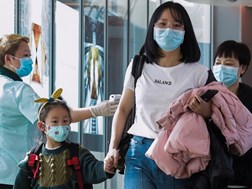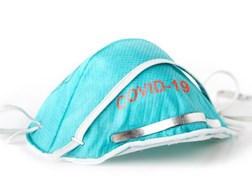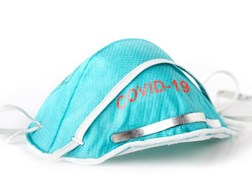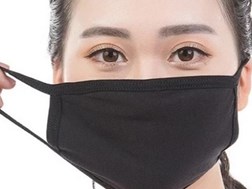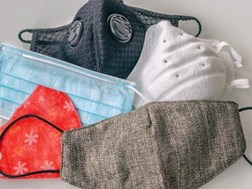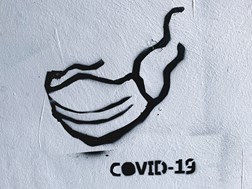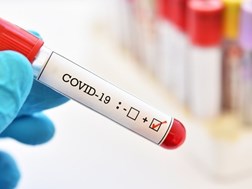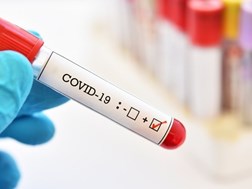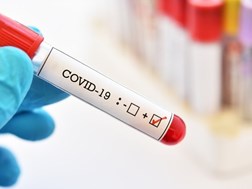
COVID-19 The Facts
The South African Health Department as well as the World
Health Organisation have made available the following useful information to
protect yourself, your loved ones and your community regarding the COVID-19
pandemic.
You can also phone the Coronavirus Hotline Number: 0800 029 999, from 8am to 4pm, Monday to Friday, or send ‘Hi’ to 0600 123 456 on WhatsApp.
The NICD has another Clinician Hotline to improve #COVID19 communication and support for healthcare providers. The Clinician Hotline is 0800 11 1131, operating 24 hrs. The Public Hotline is 0800 029 999 also operating 24hrs.
Furthermore, get the latest relevant information pertaining to the South African situation www.sacoronavirus.co.za.
As of Wednesday, 22 June 2022, South Africans no longer need to wear masks indoors in public settings. This after Health minister Joe Phaahla repealed the relevant regulations in the Government Gazette Limits on gatherings, and border checks – including for vaccination status – have also been dropped.
The repealed rules formed part of what is formally known as the Regulations Relating to the Surveillance and the Control of Notifiable Medical Conditions, into which they were inserted on 4 May. They are:
- 16A: "Wearing of face masks to contain the spread of Covid-19", which required a mask in any public-use indoor space or when on public transport
- 16B: "Regulation of gatherings to contain the spread of Covid-19", which limited any gathering of more than 100 people to 50% of maximum venue capacity if everyone was vaccinated, or to an absolute maximum of 1,000 people indoors or 2,000 people outdoors if vaccination status was not checked.
- 16C: "Regulation of persons entering the country to contain the spread of Covid-19", which demanded either vaccination certificates or recent negative PCR tests, or proof of recovery from Covid-19, from all travellers older than 12 entering South Africa.
The President has urged South Africans to get vaccinated, saying it is not only to protect themselves and those around them, but also to prevent the emergence of new variants.
There are five ways to register on the Electronic Vaccination Data System (EVDS) for the vaccination:
1. Online
- Register here.
2. Whatsapp
- Dial 0600 123456 and follow the prompts
3. SMS
- Dial *134*832#.
4. Covid-19 hotline
- Call 0800 029 999.
5. QR code
- Citizens can scan the QR code available on the SA coronavirus and health department websites and follow the prompts.
Violence against women and girls is unacceptable.
Are you at risk or know someone who is? Report it at GBV Command Centre: 0800 428 428 or dial 120786#
For stats: Click Here
For updated press releases or information from the Government: Click Here
For Lancet Testing venues (Self-funded - R1200): Click Here
For Government Testing, contact 0800029999 to organize.
The best actions you can take to reduce your chance of getting COVID-19 are:
- Wash your hands frequently.
- Avoid touching eyes, nose and mouth.
- Cover your cough or sneeze with a tissue, and throw it away after use.
- Avoid close contact with infected people.
There are currently no vaccines available to protect you against COVID-19 infection.
If you are mildly sick, keep yourself hydrated, stay at home, and rest.
The symptoms of COVID-19 are:
- a cough
- a fever
- shortness of breath
But these symptoms do not necessarily mean you have the illness. The symptoms are similar to other illnesses that are much more common, such as cold and flu.
It's very unlikely to be COVID-19 if:
- You have not been in close contact with someone with confirmed COVID-19
- You have not been to a country or area with a high risk of COVID-19 in the last 14 days such as China, Singapore, Hong Kong, Italy, Japan, Thailand, Vietnam and others.
To date, there is no specific medicine recommended to prevent or treat COVID-19.
However, those infected with the virus should receive appropriate care to relieve and treat symptoms, and those with severe illness should receive optimised supportive care. Some specific treatments are under investigation, and will be tested through clinical trials. The World Health Organization is helping to accelerate research and development efforts with a range or partners.
Watch this video to find out more about treatment available for COVID-19:
Preliminary information suggests older adults and people with underlying health conditions or compromised immune systems may be at higher risk of severe illness from this virus.
The risk depends on where you are - and more specifically, whether there is a COVID-19 outbreak unfolding there.
For most people in most locations the risk of catching COVID-19 is still low. However, there are now places around the world (cities or areas) where the disease is spreading. For people living in, or visiting, these areas the risk of catching COVID-19 is higher. Governments and health authorities are taking vigorous action every time a new case of COVID-19 is identified. Be sure to comply with any local restrictions on travel, movement or large gatherings. Cooperating with disease control efforts will reduce your risk of catching or spreading COVID-19.
COVID-19 outbreaks can be contained and transmission stopped, as has been shown in China and some other countries. Unfortunately, new outbreaks can emerge rapidly. It’s important to be aware of the situation where you are or intend to go. WHO publishes daily updates on the COVID-19 situation worldwide. You can get the latest updates by replying GLOBAL.
Many characteristics of this COVID-19, and how it may affect people, are still unclear.
If you feel you have been exposed to COVID-19, or are showing slight symptoms, please avoid contact with other people in your community and self-isolate.
If you feel you are ill and need non-urgent medical care, call your doctor to ask how to be tested. They will need to follow certain steps to get you the specific care you need.
If you are feeling very ill and need care immediately, call your emergency services or go to the emergency department.
If you are feeling very ill and need care immediately, call your emergency services or go to the emergency department.
- Call your healthcare facility and tell them that you have, or are being evaluated for, COVID-19.
- Put on a face mask before you enter the healthcare facility.
- Ask your healthcare professional to inform the NICD.
As per the Presidential Address on 15 March 2020:
“South African citizens are advised to refrain from all forms of travel to or through the European Union, United States, United Kingdom and other identified high-risk countries such as China, Iran and South Korea. This is effective immediately.
South African citizens returning from high-risk countries will be subjected to testing and self-isolation or quarantine on return to South Africa.
All travellers who have entered South Africa from high-risk countries since mid-February will be required to present themselves for testing.
Travel of foreign nationals from high risk countries including the Italy, Iran, South Korea, Spain, Germany, the United States, the United Kingdom and China will be banned from 18 March 2020. Visas that have been issued will be revoked.
Travellers from medium-risk countries - such as Portugal, Hong Kong and Singapore - will be required to undergo high intensity screening
More stringent measures will be implemented in our international Airports to enforce these measures.
South Africa has 72 ports of entry in the country which are land, sea and air ports. Of the 53 land ports, 35 will be shut down with effect from Monday 16 March. 2 of the 8 sea ports will be closed for passengers and crew changes.
Effective immediately, all non-essential travel for all spheres of government outside of the Republic is prohibited.
We further discourage all non-essential domestic travel, particularly by air, rail, taxis and bus.”
The department of small business development has made over R500 million available immediately to assist small and medium enterprises that are in distress through a simplified application process. The debt relief fund will assist entities in acquiring raw material, paying labour and other operational cost. All these interventions will be structured to match the patterns of the SMME’s cash flow, as well as the extent of the impact suffered. Apply here: http://www.smmesa.gov.za/ A Solidarity Fund has been set up for South African businesses, organisations and individuals, and members of the international community to contribute to: https://www.solidarityfund.co.za/
There is a lot of false information currently going around. Make sure you have the facts.
Can spraying alcohol or chlorine all over your body kill COVID-19?
No. Spraying alcohol or chlorine all over your body will not kill viruses that have already entered your body. Spraying such substances can be harmful to clothes or mucous membranes (i.e. eyes, mouth). Be aware that both alcohol and chlorine can be useful to disinfect surfaces, but they need to be used under appropriate recommendations.
Are hand dryers effective in killing COVID-19?
No. Hand dryers are not effective in killing COVID-19. To protect yourself against COVID-19, you should frequently clean your hands with an alcohol-based hand rub or wash them with soap and water. Once your hands are cleaned, you should dry them thoroughly by using paper towels or a warm air dryer.
COVID-19 CANNOT be transmitted through mosquito bites.
To date there has been no information nor evidence to suggest that COVID-19 could be transmitted by mosquitoes. COVID-19 is a respiratory virus which spreads primarily through droplets generated when an infected person coughs or sneezes, or through droplets of saliva or discharge from the nose. To protect yourself, clean your hands frequently with an alcohol-based hand rub or wash them with soap and water. Also, avoid close contact with anyone who is coughing and sneezing.
Can regularly rinsing your nose with saline help prevent infection with COVID-19?
No. There is no evidence that regularly rinsing the nose with saline has protected people from infection with COVID-19.
There is some limited evidence that regularly rinsing nose with saline can help people recover more quickly from the common cold. However, regularly rinsing the nose has not been shown to prevent respiratory infections.
Can eating garlic help prevent infection with COVID-19?
Garlic is a healthy food that may have some antimicrobial properties. However, there is no evidence from the current outbreak that eating garlic has protected people from COVID-19.
Taking a hot bath does not prevent COVID-19.
Taking a hot bath will not prevent you from catching COVID-19. Your normal body temperature remains around 36.5°C to 37°C, regardless of the temperature of your bath or shower. Actually, taking a hot bath with extremely hot water can be harmful as it can burn you. The best way to protect yourself against COVID-19 is by frequently cleaning your hands. By doing this you eliminate viruses that may be on your hands and avoid infection that could occur by then touching your eyes, mouth, and nose.
Cold weather and snow CANNOT kill COVID-19.
There is no reason to believe that cold weather can kill COVID-19 or other diseases. The normal human body temperature remains around 36.5°C to 37°C, regardless of the external temperature or weather. The most effective way to protect yourself against COVID-19 is by frequently cleaning your hands with alcohol-based hand rub or washing them with soap and water.
COVID-19 cannot be transmitted through goods manufactured in China or any country reporting COVID-19 cases.
Even though COVID-19 can stay on surfaces for a few hours or up to several days (depending on the type of surface), it is very unlikely that the virus will persist on a surface after being moved, travelled, and exposed to different conditions and temperatures. If you think a surface may be contaminated, use a disinfectant to clean it. After touching it, clean your hands with an alcohol-based hand rub or wash them with soap and water.
Can an ultraviolet disinfection lamp kill COVID-19?
UV lamps should not be used to sterilize hands or other areas of skin as UV radiation can cause skin irritation.
Does COVID-19 affect older people, or are younger people also susceptible?
People of all ages can be infected by COVID-19. Older people, and people with pre-existing medical conditions (such as asthma, diabetes, heart disease) appear to be more vulnerable to becoming severely ill with the virus.
WHO advises people of all ages to take steps to protect themselves from the virus, for example by following good hand-hygiene and good respiratory-hygiene.
How effective are thermal scanners in detecting people infected with COVID-19?
Thermal scanners are effective in detecting people who have developed a fever (i.e. have a higher than normal body temperature) because of infection with COVID-19.
However, they cannot detect people who are infected but are not yet sick with fever. This is because it takes between 2 and 10 days before people who are infected become sick and develop a fever.
Can pets at home spread the COVID-19?
At present, there is no evidence that companion animals/pets such as dogs or cats can be infected with COVID-19. However, it is always a good idea to wash your hands with soap and water after contact with pets. This protects you against various common bacteria such as E.coli and Salmonella that can pass between pets and humans.
Do vaccines against pneumonia protect you against COVID-19?
No. Vaccines against pneumonia, such as pneumococcal vaccine and Haemophilus influenza type B (Hib) vaccine, do not provide protection against COVID-19.
The virus is so new and different that it needs its own vaccine. Researchers are trying to develop a vaccine against COVID-19, and WHO is supporting their efforts.
Although these vaccines are not effective against COVID-19, vaccination against respiratory illnesses is highly recommended to protect your health.
Are antibiotics effective in preventing and treating COVID-19?
No, antibiotics do not work against viruses, only bacteria.
COVID-19 is a virus and, therefore, antibiotics should not be used as a means of prevention or treatment.
However, if you are hospitalized for the 2019-nCoV, you may receive antibiotics because bacterial co-infection is possible.
Are there any specific medicines to prevent or treat COVID-19?
To date, there is no specific medicine recommended to prevent or treat COVID-19.
However, those infected with the virus should receive appropriate care to relieve and treat symptoms, and those with severe illness should receive optimized supportive care. Some specific treatments are under investigation, and will be tested through clinical trials. WHO is helping to accelerate research and development efforts with a range or partners.


